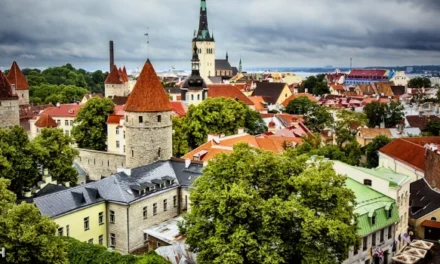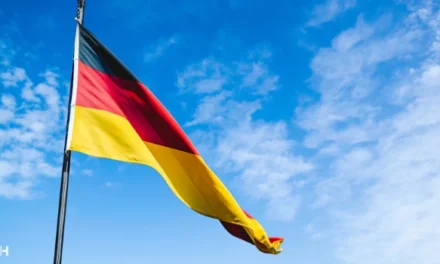Iceland’s stance on Israel has evolved significantly over the years, reflecting a complex interplay of historical, political, and humanitarian factors. This article delves into the nuanced relationship between these two nations, exploring Iceland’s shifting perspectives and the various elements that shape its current position.
Historical Context: Iceland’s Early Stance on Israel
Iceland’s involvement in the Israel-Palestine conflict dates back to the formation of the Jewish state. In 1947, Iceland played a crucial role in the United Nations Partition Plan for Palestine.
| Key Figure | Role | Contribution |
|---|---|---|
| Thor Thors | Iceland’s UN representative | Rapporteur for UNSCOP |
Thor Thors’ efforts were instrumental in recommending the partition of British Mandate Palestine into two states – one Jewish and one Arab. This early support for the creation of Israel stands in stark contrast to Iceland’s current position, demonstrating how dramatically perspectives can shift over time.
The Shifting Tides: Iceland’s Changing Perspective
Over the decades, Iceland’s stance on Israel has undergone a significant transformation. Several key events and developments have contributed to this shift:
- Recognition of Palestine: In 2011, Iceland became the first Western European nation to recognize Palestinian statehood.
- Criticism of Israeli Actions: Iceland has been increasingly vocal in its criticism of Israeli policies, particularly regarding the treatment of Palestinians and the ongoing conflict in Gaza.
- Public Opinion: There’s been a growing pro-Palestine sentiment among the Icelandic public, with recent polls suggesting up to 76% of Icelanders support Palestine.
- Activism and Demonstrations: The Iceland-Palestine Association has been active for nearly 40 years, organizing over 50 demonstrations and events in recent months.
Current Icelandic Government Position
The Icelandic government’s current stance on the Israel-Palestine conflict is characterized by:
- Support for a Two-State Solution: Iceland officially endorses the two-state solution to the conflict.
- Calls for Ceasefire: In November 2023, the Icelandic parliament passed a resolution calling for an immediate humanitarian ceasefire in Gaza.
- Condemnation of Violence: The resolution condemned both Hamas’s terrorist attack on Israel and subsequent Israeli actions that violated international humanitarian law.
- Humanitarian Focus: Iceland has emphasized the need for humanitarian aid and the protection of civilians in the conflict zone.
Public Opinion and Activism in Iceland
The Icelandic public has shown strong support for the Palestinian cause:
| Form of Support | Examples |
|---|---|
| Demonstrations | Numerous pro-Palestine rallies across Iceland |
| Boycott Movements | Calls to boycott Israeli goods and withdraw from Eurovision when held in Israel |
| Cultural Solidarity | Icelandic artists showing support, e.g., Hatari’s controversial Eurovision 2019 performance |
Economic and Diplomatic Relations
Despite the growing pro-Palestine sentiment, Iceland maintains diplomatic relations with Israel:
- Trade: Ongoing trade between Iceland and Israel, though volume is relatively small.
- Boycott Debates: Reykjavik city council once passed a motion to boycott Israeli goods, later amended to focus only on goods from occupied territories.
- Diplomatic Ties: While critical of many Israeli policies, Iceland has not severed diplomatic ties with Israel.
Humanitarian Aid and Involvement
Iceland has taken several steps to provide humanitarian support in the region:
- UNRWA Funding: Increased contributions to the United Nations Relief and Works Agency for Palestine Refugees (UNRWA).
- Emergency Response: Additional funds allocated for the UN emergency response in Gaza.
- Advocacy: The Icelandic government has been advocating for increased humanitarian assistance and investigations into violations of international law.
Challenges and Controversies
The Israel-Palestine issue remains contentious in Iceland:
- Anti-Semitism Concerns: Discussions about historical anti-Semitism in Iceland, including controversial religious practices.
- Media Representation: Debates over the portrayal of the conflict in Icelandic media.
- Balancing Act: The government faces challenges in balancing humanitarian concerns with diplomatic relations.
Comparison with Other Nordic Countries
Iceland’s stance on Israel and Palestine is generally aligned with other Nordic countries, though with some distinctions:
| Country | Recognition of Palestine | Stance on Israel |
|---|---|---|
| Iceland | Recognized in 2011 | Critical, calls for ceasefire |
| Norway | Not recognized | Supports two-state solution |
| Sweden | Recognized in 2014 | Critical of settlements |
| Denmark | Not recognized | Supports two-state solution |
| Finland | Not recognized | Supports two-state solution |
Conclusion
Iceland’s relationship with Israel is complex and evolving. While historically supportive of Israel’s creation, Iceland has increasingly aligned itself with Palestinian causes in recent years. This shift reflects changing global perspectives, growing awareness of the Palestinian situation, and Iceland’s commitment to human rights and international law.
As the situation in the Middle East continues to develop, Iceland’s stance may further evolve. What remains clear is that this small Nordic nation continues to play an active role in international discussions surrounding one of the world’s most enduring conflicts.
FAQs: Does Iceland Support Israel?
Iceland does not have an official stance on supporting Israel. However, relations between Iceland and Israel have varied over the years.
What is the stance of the Ministry of Foreign Affairs in Iceland regarding Israeli goods?
The Ministry for Foreign Affairs in Iceland has not made any official statements regarding a boycott of Israeli goods.
Have there been any parliamentary resolutions in Iceland concerning the conflict between Israel and Palestine?
As of now, there have been no specific parliamentary resolutions in Iceland regarding the conflict between Israel and Palestine.
When did Iceland recognize the state of Israel?
Iceland was the first Western country to recognize the state of Israel on October 7, 1948.
Is there any involvement of Icelandic officials in mediating the conflict between Israel and Hamas?
Icelandic officials have not been directly involved in mediating the conflict between Israel and Hamas.
What role does the government of Iceland play in the relations between Iceland and Israel?
The government of Iceland manages diplomatic relations with Israel through its Ministry of Foreign Affairs.
How do Icelandic people perceive the conflict between Israel and Palestine?
There is a range of opinions among Icelandic people regarding the conflict between Israel and Palestine, reflecting diverse views on the issue.





